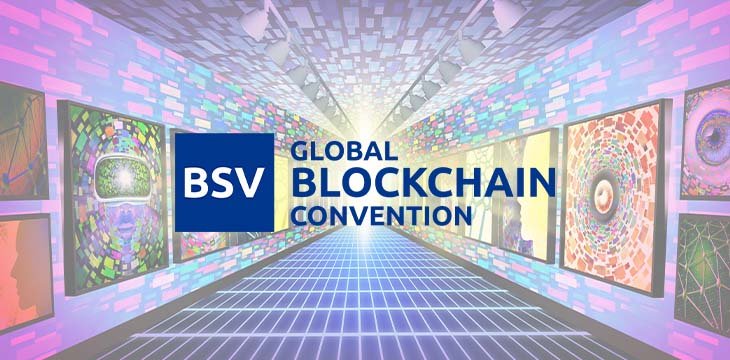|
Getting your Trinity Audio player ready...
|
In the past year or two, the tech world has been abuzz with two concepts: NFTs and the Metaverse. Heck, Mark Zuckerberg even changed the name of his company to reflect its pivot towards the Metaverse, and artists from Snoop Dogg to Justin Bieber have made headlines for either issuing or buying NFTs amidst a speculative frenzy.
However, as some of the frenzied buying begins to settle down, many are starting to wonder if NFTs and the Metaverse are mostly hype. The truth is that they’re a mix of both, simultaneously real and with massive potential, but largely misunderstood and misused at this point in time. Let’s look closer at both concepts and consider their world-changing potential.
First, what is the Metaverse?
Like many new concepts in the tech world, the Metaverse can be challenging to pin down and define. Depending on who you ask, it’s a mix of virtual and augmented reality, blockchain technology, micropayments, and entirely new ways of doing things such as playing games and interacting online.
Yet, when we get down to brass tacks, the Metaverse can only be one thing in reality: a virtual world fueled by micropayments and underpinned by blockchain technology. That’s a relatively simple definition, but it has world-altering implications.
While much of the focus on the Metaverse has been on what Mark Zuckerberg and Meta are pitching, the reality is very different. The Metaverse is a virtual world where users will have ownership and autonomy, Bitcoin micropayments will fuel transactions and interactions, and big firms like Meta will take a back seat to user control.
Concrete examples can help define things better, so let’s look at what the Metaverse might mean for gaming. Imagine players put on a VR headset, enter a 3D world in which they battle it out with other players, and both pay to play and earn as they win. With technology like Instant Leaderboard Payouts, players who win tournaments and unlock new high scores will earn continuously from their leaderboard positions. According to some Metaverse advocates, users will even get to control how games and virtual worlds develop through community votes.
Do you get it yet? It’s not up to tech overlords like Mark Zuckerberg to tell us what the Metaverse is; we must develop and create it on the Bitcoin SV protocol. Unlike Zuckerberg’s dystopian ad-fueled Metaverse, the real one will be powered by Bitcoin micropayments.
What about NFTs?
NFT stands for non-fungible token. That means that each token is unlike any other. Unlike bitcoins or satoshis, which are interchangeable without a noticeable difference, non-fungible tokens are unique. NFTs experienced a wild year in 2021. Artists like Beeple hit the mainstream headlines, earning tens of millions for digital art, Bored Ape JPEGs sold for more than beachfront houses, and legendary artists like Snoop Dogg embraced them as the future of the entertainment industry.
While it’s true that NFTs are pretty cool and that they’ll give artists a great degree of control over how their work is monetized, there’s no doubt that the current NFT market is going through a sort of mania as ICOs did back in 2017. Things will crash, and there’s already plenty of evidence that the NFT hot streak is cooling down.
As in the Dot Com bubble of 2001, the crash in prices doesn’t mean that NFTs were just a fad. Quite to the contrary, when the frenzy is over, the real utility and applications get a chance to come to the forefront and shine.
What are some practical use cases for NFTs? Here are some ideas spoken about by Dr. Craig Wright.
- Authenticity of goods – It’s no secret that counterfeit goods are a huge problem globally. With NFTs, it would be possible to immediately verify the authenticity of a high-value item such as a Rolex watch or a Gucci bag. Unlike physical certificates, these couldn’t be forged or altered as they’d live on the blockchain and change hands with each new owner.
- Control and access – Who can access the bank vault or the bio lab? Right now, if you have the keys or the access card, you can. However, with NFTs, it’s possible to give each employee an NFT with access to certain areas of the building but not others. Better yet, each access event would be logged on the immutable Bitcoin ledger, allowing security to see who went where and when. This can go further and control access to computer networks, too.
- Tickets and vouchers – Ticket scalpers are the banes of all concert-goers, sports fans, and anyone involved in the entertainment world. With Bitcoin-based NFTs, they could become a thing of the past. Each ticket would have a unique NFT linked to the identity of the buyer. This would allow ticker issuers in every industry to prohibit resales without permission and do cool things like issue valuable rewards to loyal customers.
- Shipping and documents – One of the biggest issues facing global trade is tracking and tracing goods. Where’s that container of furniture you ordered from East Asia six weeks ago? Where did the container full of valuable goods land before it got lost? These are real problems, and NFTs on the blockchain can solve them. Things like shipping instructions, packing lists, certificates of origin, and bills of lading can all be issued as NFTs.
- Gaming – Perhaps the most tangible example of how NFTs can impact entire industries is in gaming. This isn’t hypothetical; in-game NFTs exist today in CryptoFights and other games on platforms like the Haste Arcade. Players can forge items as NFTs and can win valuable prizes like weapons or playing cards that can then be traded on marketplaces inside the game.
These use cases offer many benefits, such as traceability, a reduction in costs, and proof of authenticity. It’s not difficult to see how these simple things could have radical impacts on multiple industries in much need of a shakeup.
Learn more at the BSV Global Blockchain Convention this May
NFTs will be a fundamental part of the Metaverse. As users navigate virtual worlds, they’ll be able to pick up items, receive rewards, own things, and buy and sell items and services, just like they can in the real world. The key difference is that it will all be traceable and verifiable on the global ledger: Bitcoin SV.
There’s no doubt that both concepts will change the world in unimaginable ways. However, some pioneers and developers are already working on making some of these ideas a reality. You can learn from them by joining us at the BSV Global Blockchain Convention in Dubai this May 24 – 26. If you can’t make it to Dubai, you can attend online.
Learn more about how NFTs and the Metaverse work from experts in the field, including Bitcoin’s inventor himself. We hope to see you there!

 02-18-2026
02-18-2026 




